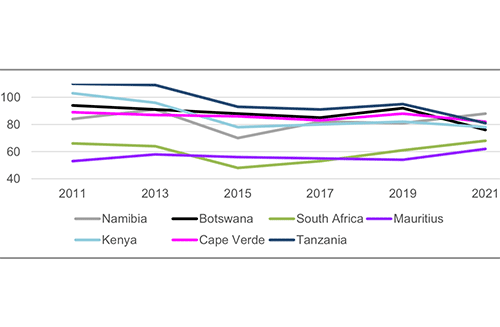The Federation of Namibian Tourism Associations is concerned about the apparent lack of awareness and recognition of the extensive financial and social role of the tourism industry in Namibia, given the absence of encompassing national statistics. The Federation of Namibian Tourism Associations (Fenata) therefore recently commissioned Simonis Storm (SS) to conduct a brief socio-economic impact study on tourism in Namibia.
The 15-page report drafted by economic experts, with input from the tourism private sector, includes a macro-economic overview of tourism, a socio-economic impact study and recommendations by SS.
Key findings point to the absence of tourism’s full reflection in Namibia’s national accounts, where the industry is being represented by “accommodation and restaurants” only, - thus not calculating the immense input of the transportation, (road, car rental and air), logistics and other services, as well as tourism activity in rural areas where most lodges are situated, including the massive impact of the industry in conservancy development.
“Tourism has become the world’s third-largest export industry after fuels and chemicals, and ahead of food and automotive products. From the last few years, there has been a great surge in international tourism, culminating to 7% share of World’s total exports in 2016 according to Future Business
Journal, January 2021,” said Bruce Hansen,
managing director of Simonis Storm.
He added that tourism is essential for the success of many economies around the world as there are several benefits of tourism on host destinations. This is because tourism boosts economic revenue, develops national infrastructure, creates jobs and establishes a sense of cultural exchange between foreigners and residents.
Said Hansen: “Therefore, it becomes increasingly important that we must have accurate data reflecting the state of tourism within Namibia – as it is currently being measured, it is very difficult to get a genuine reflection. The significance of accurate data and statistics are key to making resourceful decisions. It serves as the foundation for informed decision-making, effective policies, and transparent governance. It enables us to navigate complexities, allocate resources wisely and produce evidence-based solutions in efforts to enhance our economy and societies that function within it. As a research house, Simonis Storm is committed to be enablers of accurate and true information drivers that will assist in the decision-making process and this report is an effort in starting to address the current shortcomings”.
Fenata chairman Martin Webb-Bowen believes the absence of comprehensive data on the impact of tourism on the Namibian economy, in terms of both the financial contribution and the social impact on the development of rural communities, is a major part of the reason why authorities do not seem to give sufficient priority to the tourism sector when taking policy decisions on land access and the use of natural resources across the country.
“It is key that we, as Namibians, ensure that tourism is recognised for its role in guaranteeing a future for the country and its people as this is an industry with arguably the largest real potential for sustainability,” said Webb-Bowen.
He continued that for Namibia to safeguard this sustainability, decision-makers will need to make informed decisions on the exploration and development of Namibia’s natural resources and to take full account of all socio-economic aspects of that development. Tourism is one of the main economic pillars of the country, but it is not always recognised for its full impact and potential – partly due to the fragmented way in which it is reflected in national accounts.”
Fenata hopes that the study, when added to the eagerly awaited 6th edition of the Namibian Tourism Satellite Account scheduled to be issued later this year, will provide the necessary data to allow Namibian authorities to recognise the value of tourism and to ensure pristine areas of the country are essential as part of the overall tourism product are properly ring-fenced for sustainable tourism use.
In early 2020, following concerns raised about foreign ‘leakage’ within the tourism industry, the Bank of Namibia issued a report, focussing on the impact of tourism in Namibia and its value to the economy. In its conclusions and recommendations, the central bank stated that there is enough evidence to confirm that illegal leakages in the tourism
industry is mainly limited to necessary trading with international trade partners on which the industry
relies for the bulk of its business. The bank also recommended that government escalates its efforts to support the
tourism industry to enable it to grow to its fullest potential as contributor to economic growth, job creation and earner of foreign exchange which will also have a positive impact on domestic tax revenue.


